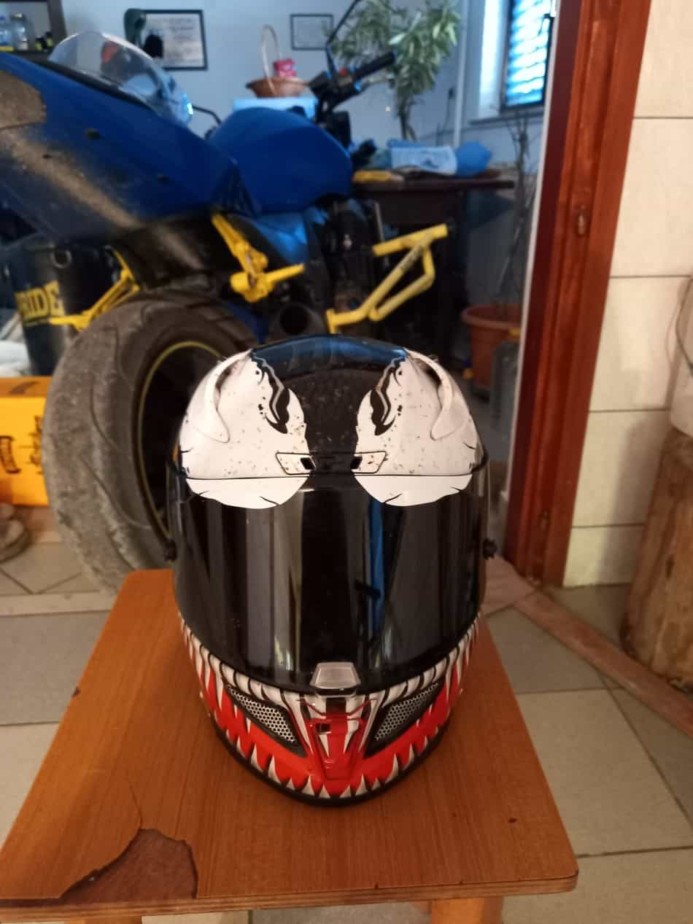
A motorcycle helmet is a very protective piece of your motorcycle gear. It protects your head from many factors that happen during the ride, like the wind, but most importantly, it protects your head from injuries that can happen in case of an impact.
In this article, we will make a comparison between two mostly used motorcycle helmets and which are full-face helmets and modular helmets.
So which helmet is the better one, a full-face or modular helmet? A full-face helmet gives much better head protection from weather conditions and debris protection. On the other hand, a modular helmet gives you better comfort, convenience, and insulation. It is up to you to decide what suits you best, but choose a full-face helmet if you plan to race.
Further in this article, we will dive more into the comparison between these two types of motorcycle helmets. Stay with us to learn more.
Table of Contents
Full-Face Vs Modular Helmets
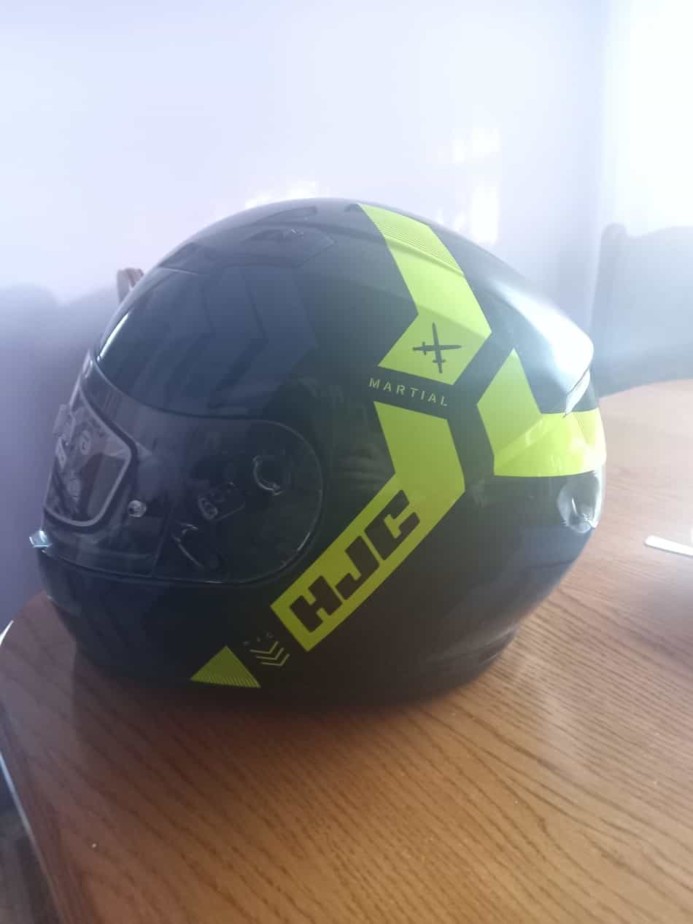
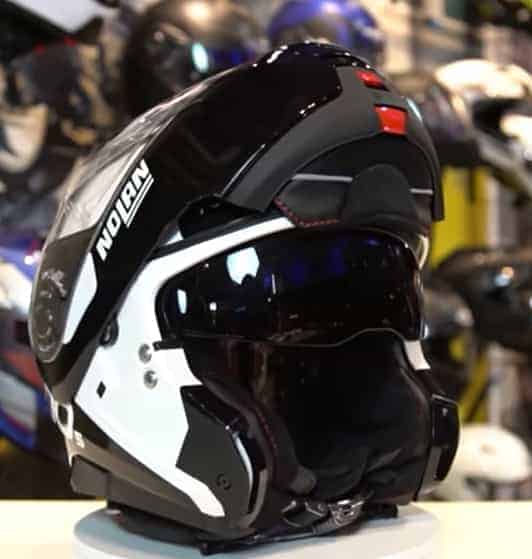
If you would take two motorcycle helmets where one of them is a full-face helmet and the other one is modular, and you would put it in front of someone who doesn’t ride motorcycles, I guarantee you that this person wouldn’t know the difference between these two helmets.
At first look, full-face helmets and modular ones look the same, and they are the most popular helmet types used among motorcycle riders. The reason why they are so popular is that they offer you the best protection while at the same time they feel comfortable (full-face helmets need will feel a little bit tight in the beginning, but will stretch a little bit as you wear it, while a modular helmet can be raised to the upside and this will give you some comfort and fresh air while riding).
A modular helmet can be described as a combination of an open motorcycle helmet and a full-face one. It is made to give you convenience and comfort while riding. It has a hatch that can be flipped upwards, making it an open helmet ideal for hot summer rides.
A full-face helmet is a motorcycle helmet that covers every part of your head, making it the best protective type of helmet. The visor (face shield) is the only part of a full-face helmet that can raise (open), giving you some airflow during hot summer days.
Safety
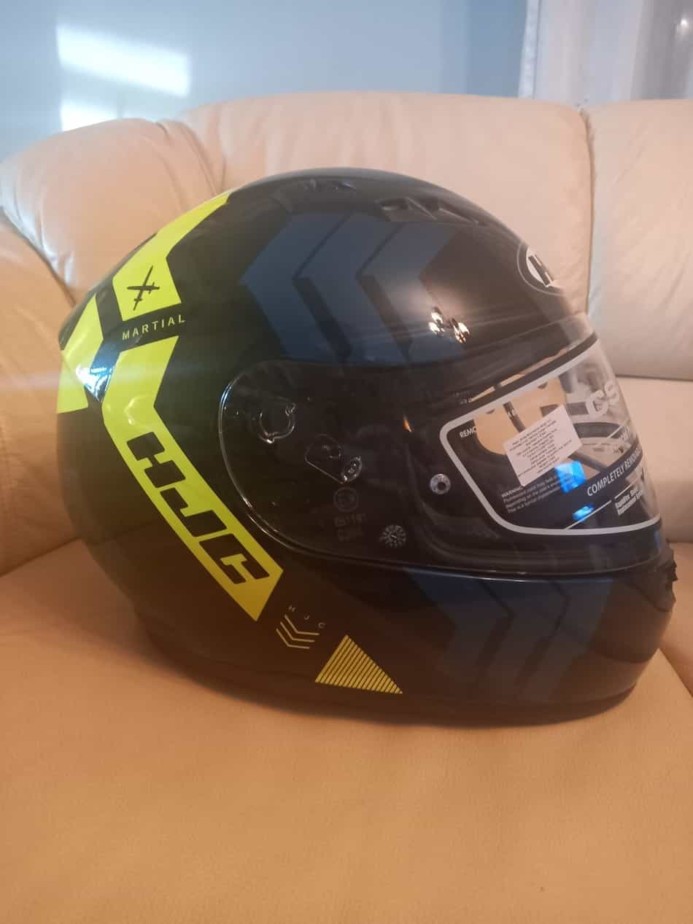
When we compare a full-face helmet and a modular one, we can see that a full-face helmet is a much safer option. It offers uniform and solid construction and covers your entire head, which means that there are no exposed spots that could get hurt in case of a traffic accident.
Since a full-face helmet has a single opening that, in combination with the helmet strap, makes it really powerful protection, there is a small chance that it will get removed from your head in case of an accident or you falling from your bike. This is the main reason why full-face helmets are used by not only professional riders but any rider who goes to race tracks or just like “normal” city or touring rides.
If you want to learn more about motorcycle straps, click on this link.
Now let’s take a look at modular helmets. Modular helmets have hinges in their structure which means that they are not as strong and solid as full-face helmets. Unlike full-face helmets, modular helmets have a hatch that can present their weak spot because this spot can get broken or detached in case of a motorcycle accident or stronger impact.
This is another indicator that can appoint modular helmets to be easily removed from the rider’s head in case of an impact. A study says that about 19% of motorcycle accidents affect the chin, which is one of the weak head spots, and in this case, your chin will be much better protected if you wear a full-face helmet.
Win: Full-face helmets
Debris Protection
Every motorcycle rider faces a different type of debris while riding. It is impossible not to encounter particles such as bugs, dust, and dirt on the road. They can be dangerous for you if they get into your mouth, eyes, or nose. They can lower your vision, or in a worst-case scenario, you could start coughing, which will affect your steering abilities.
Full-face helmets and modular ones have a face shield (visor) that protects your eyes (when it is closed, of course) from all of the debris types mentioned above, and that way ensures you ride safely.
Full-face helmets cover your entire head, providing you with much better protection from debris. Modular helmets are flip flow helmets which means that at the points where these two helmet parts detach, there are cracks through which debris can enter inside your helmet and get to your head.
Another big mistake is when some riders ride with their helmet open because outside, it is a hot sunny summer day, but they forget the fact that they ride through dusty areas. That is the perfect way for the dust particles to enter your mouth, nose, and eyes.
Win: Full-face helmets
Weather Protection
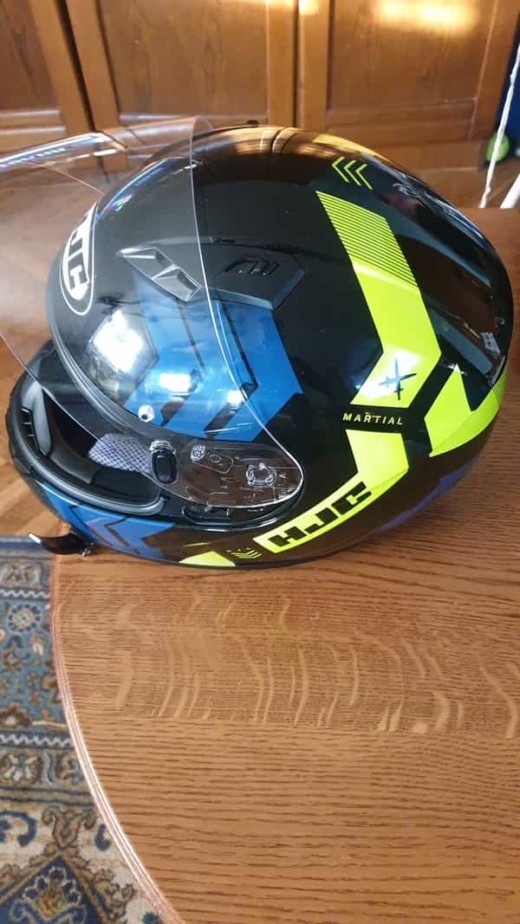
A great thing about full-face and modular helmets is that you can custom-tint their visors for better sun protection when you ride during summer days. Your eyes will be better protected from the sun if you put the tint on, and this will make your ride much safer since the sun’s rays won’t get directly into your eyes, making you blind.
Both helmets types offer you great sun protection, and you won’t get sunburn and windburn because they cover your entire head. Although full-face helmets have a little advantage compared to modular helmets because they protect your whole head, and I mostly mean that they don’t have these tiny little cracks that modular helmets have.
Riders who use modular helmets can notice uneven tan lines on their head just because of these little cracks whose purpose is to flip your helmet. On the other hand, modular helmets have this advantage since they can be flipped up. That way, they keep you cool on hot summer days since they have much better ventilation than full-face helmets that can only be ventilated by raising your visor. This is just a little air amount compared to the air ventilation you get when raising the lower half of the modular helmets.
Full-face helmets are a far better option for riding in cold weather because they offer you better insulation. Wearing a modular helmet will let cold air inside because it has these tiny cracks whose purpose is to raise the lower part of your helmet.
Winner: Full-face helmets
Comfort And Convenience
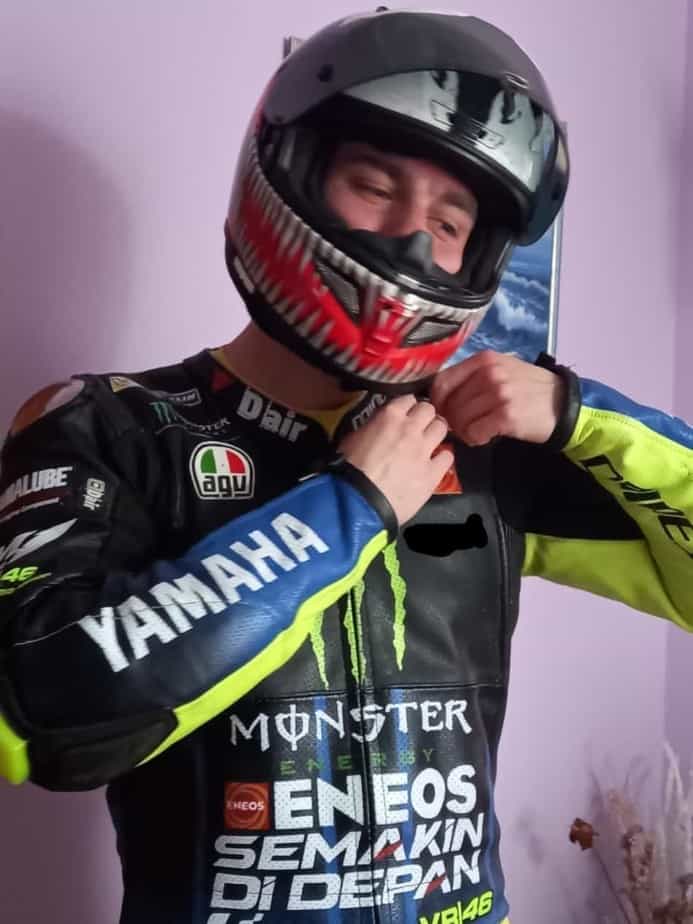
Let’s look at these helmets from a comfort aspect. We will notice that modular helmets offer you more comfort, especially during hot summer days, because they have a much better ventilation design, enabling better airflow. You will feel much hotter wearing a full-face helmet during summer rides, which will result in your head starting to sweat. The heat, especially hotter ones, can lower your driving focus and concentration.
A modular helmet is much more convenient than a full-face helmet is. You don’t need to take it off to access your face and mouth area like you need to when wearing a modular helmet. This comes in handy, especially in moments where you need to drink some water or want some air to cool your head and face, while at the same time, you don’t need to take your helmet off.
If you need some water or you are hungry and want to eat a snack, you will need to take off your full-face helmet. You will also have to take it off at service or gas stations. Some riders I have spoken to complain that their full-face helmets are heavy and too bulky, and they don’t feel comfortable wearing them.
Win: Modular helmets
Here is an excellent video from DanDanTheFireman about Full-Face Vs Modular Helmet Comparison:
Noise Insulation
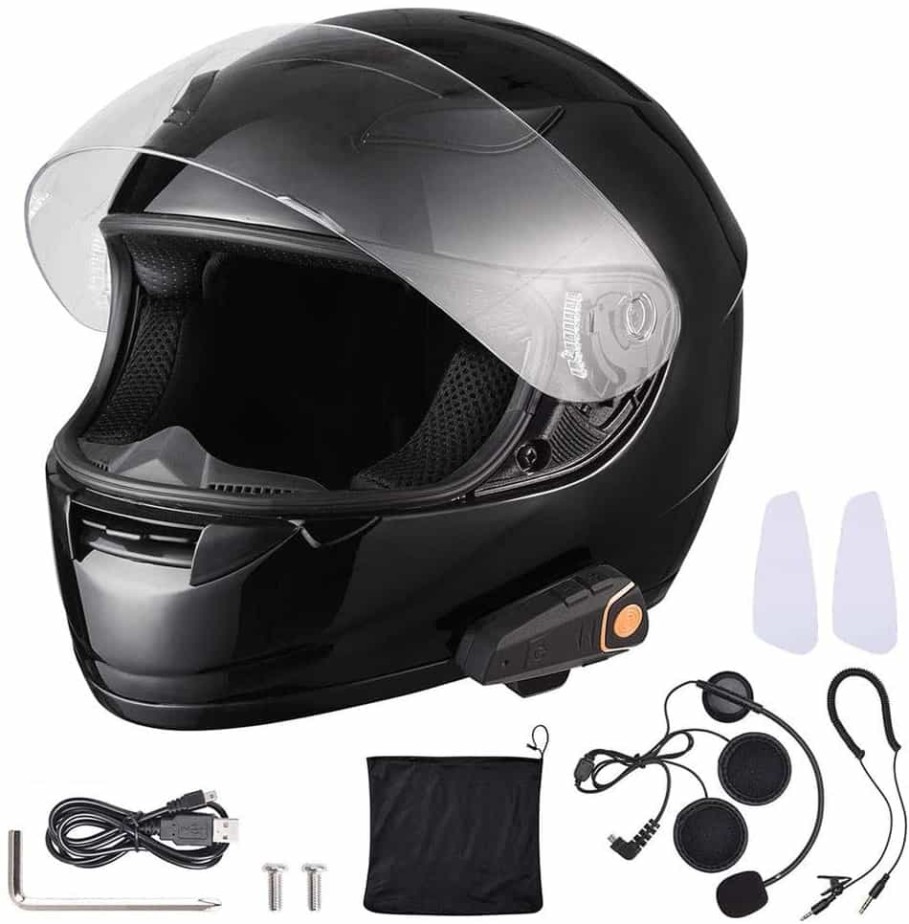
Noise insulation is another important factor you need to consider while riding, and that is because noise affects your awareness. Your helmet needs to isolate unwanted noise and lower its intensity. You need to be aware of the sounds around you, like the ones coming from other traffic participants and their horns or even the sounds like screeching tires, so you are aware that some vehicle is trying to slow down suddenly.
Since a modular helmet has a better ventilation system, it doesn’t put so much pressure on your ears, which means that you will hear better the noise and sounds surrounding you.
A full-face helmet has a lot of tight padding, making your hearing sense a little limited compared to the modular helmet. Some riders even report that they have trouble hearing other riders while riding; luckily, you can solve this problem by installing an intercom system.
We advise you to consider Sena and Cardo intercom systems since they are one of the best systems a rider can get on today’s market. If you want to learn more about Sena and Cardo intercom systems and which one is better, you can find it out by clicking on this link.
Win: Modular helmets
Additional Features
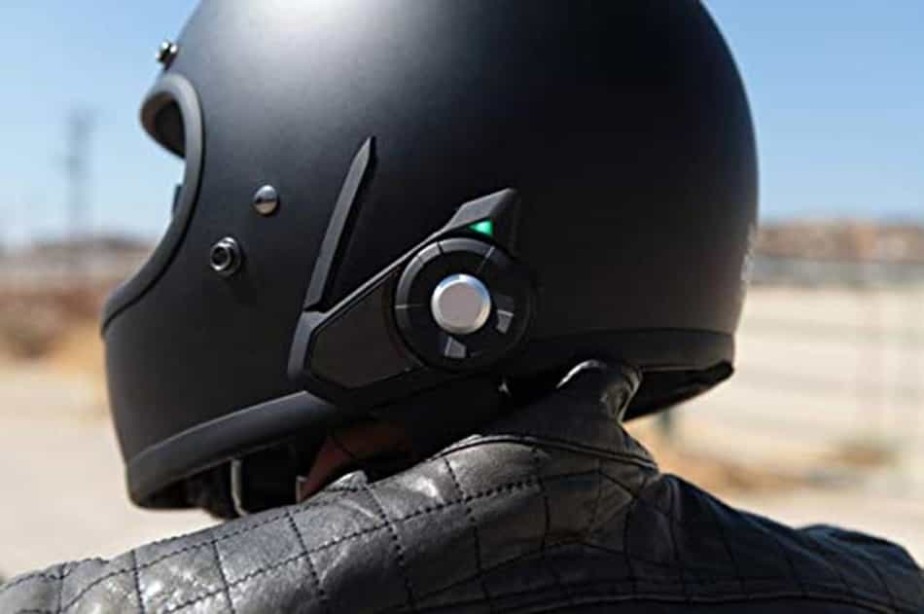
Full-face and modular helmets have a great aerodynamic design, and another great feature is that you can install Bluetooth intercom systems on both of them. Some motorcycle helmets are bulkier than the other ones, which can make a rider feel uncomfortable if he needs to wear them for a longer time.
Before you buy a motorcycle helmet, you need to determine your needs, and what motorcycle helmet type will meet your needs the best way possible. You should also consider the following factor when selecting your motorcycle helmet and make sure that these entities approve the helmet:
- The Economic Commission for Europe
- The Snell Memorial Foundation (this one goes for racing helmets)
- The U.S. Department of Transportation (DOT)
Final Thoughts
Every rider needs to think about his needs and, depending on that, choose a motorcycle helmet that will perfectly satisfy his driving needs. Full-face and modular helmets are the most popular and most used types of motorcycle helmets. I have 3 full-face helmets and 1 modular helmet that is a great choice when it is really hot outside, like summer.
Don’t rush when choosing your motorcycle helmet because remember that this piece of motorcycle gear is responsible for your head’s safety and your head is one of your body’s vital points. Take your time and pick a nice helmet.
I hope that this article has helped you better understand full-face and modular helmets, differences among them, their pros and cons, and lastly, helped you choose your motorcycle helmet.

